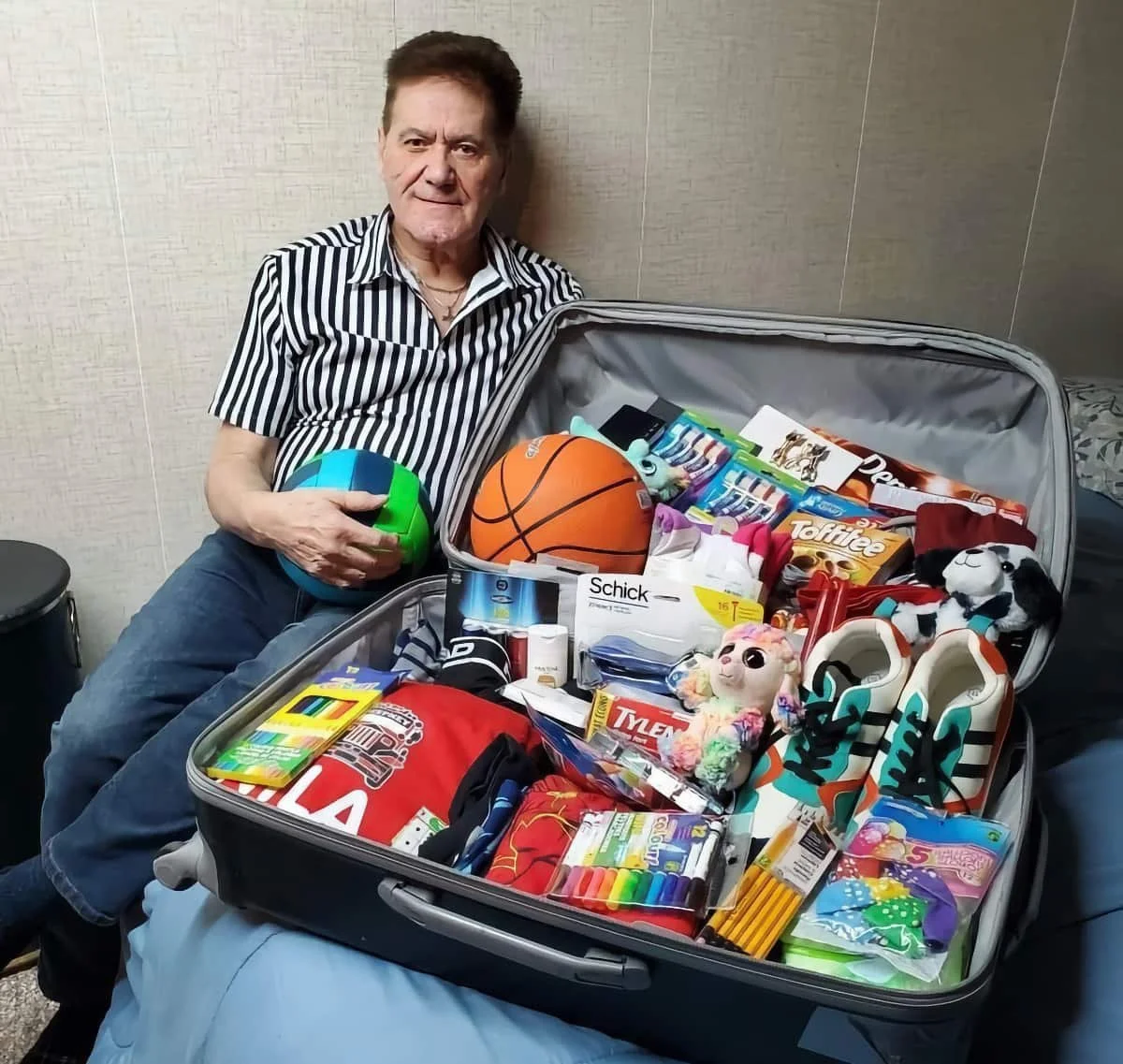Joe’s bags are packed with goods for his Cuban friends
By Joan Janzen
KERROBERT—A Kerrobert resident has his bags packed and ready for his upcoming trip to Cuba at the end of the month. However, Joe Kurtz’s checked baggage and one extra suitcase aren’t filled with what you would normally expect to see. His bags are filled with toys, markers, candy, running shoes, Tylenol, a basketball, and numerous other miscellaneous items.
Joe Kurtz from Kerrobert has his bags packed for his upcoming trip to Cuba. As you can see, Joe’s luggage contains all sorts of miscellaneous items which he will distribute to his Cuban friends, who are experiencing many hardships. SUBMITTED
This will be Joe’s twenty-fifth trip to Cuba since his last trip in March 2020, which was cut short. Throughout those years of excursions to Cuba, Joe has made many acquaintances with whom he has been able to help out, with the help of many generous friends.
Even though he hasn’t been able to visit Cuba for five years, he has remained in contact with ten families on a regular basis. “I hope to go back to Cuba in late January to help where I can with the families I know,” he said. This explains what he’ll do with all the miscellaneous supplies he has stashed away in his luggage.
During his time in Cuba, he will be staying in Varadero, while six of the families he’s in contact with reside seven hours away in a small town called Chaparra. Two of the lucky families with whom Joe corresponds were able to move to Texas, where they are working and trying to rebuild their lives. Meanwhile, the people who live in Cuba are experiencing many hardships.
Blackouts occur for three to four days in a row, sometimes lasting for a six to eight-hour time span. “This means spoiled food, no air conditioning, internet, water or cooking,” he explained. Also, there are no fans to ward off mosquitoes, and older appliances are burning out because of electrical surges. Oil and gas are also in short supply, resulting in long lines at gas stations.
Cuba recently had three hurricanes, which caused damage to homes, businesses, roads, and crops. Damage to crops, in addition to a lack of imports of food, has caused escalating food prices. “A friend said that 30 eggs almost cost his wife’s monthly salary,” Joe reported. People live on bananas, mango and bread when available.
Meat is a luxury few can afford, which results in horses being stolen for food. Joe heard of three instances where young fellows who used their horses and wagons to pick up products to sell had their horses stolen.
Medical supplies are in short supply. “Some doctors don’t even have a stethoscope,” Joe said. “Some pills are available but are found on the black market at very high costs.”
Joe’s friend Ramon had to pay his doctor $500 US for his surgery, and supplies for the surgery were brought in from Florida by a friend. “The doctor suggested Ramon stay in a rental house after the surgery because of the poor hospital conditions,” he added.
Joe reported that more than one million people have left for other countries within the past two years. Most of those people have some money and are educated.
Cuba provides free university education to its citizens. Even so, Joe’s 23-year-old friend requires his help to pay for supplies, food, and travel expenses. “It costs about $100 US a month. We were able to get him a motorcycle at a good price,” Joe said.
Tourism, Cuba’s number one industry, is down by nearly 50 percent. “Most resorts are still operating as many have generators and can come by food more readily than the people in rural areas,” he explained.
Now that Joe has his bags packed, he realizes he doesn’t need any additional donated items. However, he plans to use donated funds to make purchases from US-dollar-only stores in Cuba. “These stores accept only US dollars and usually have a good supply of essential things. If you can help, it would be great,” he concluded.

